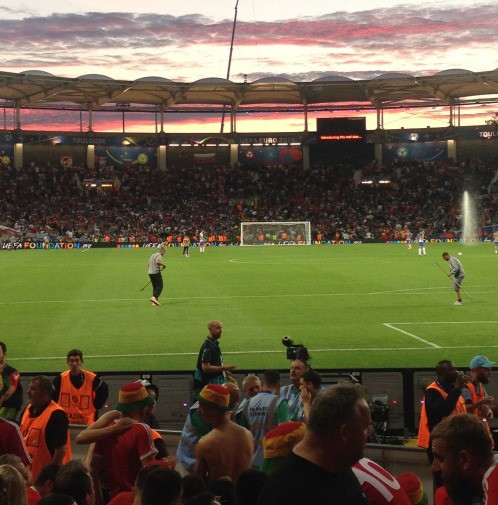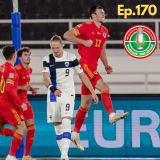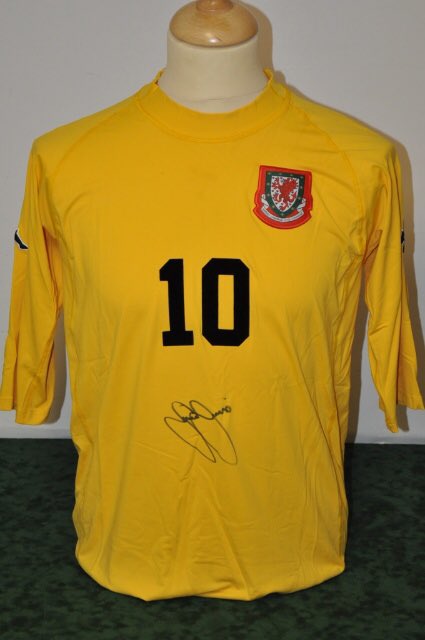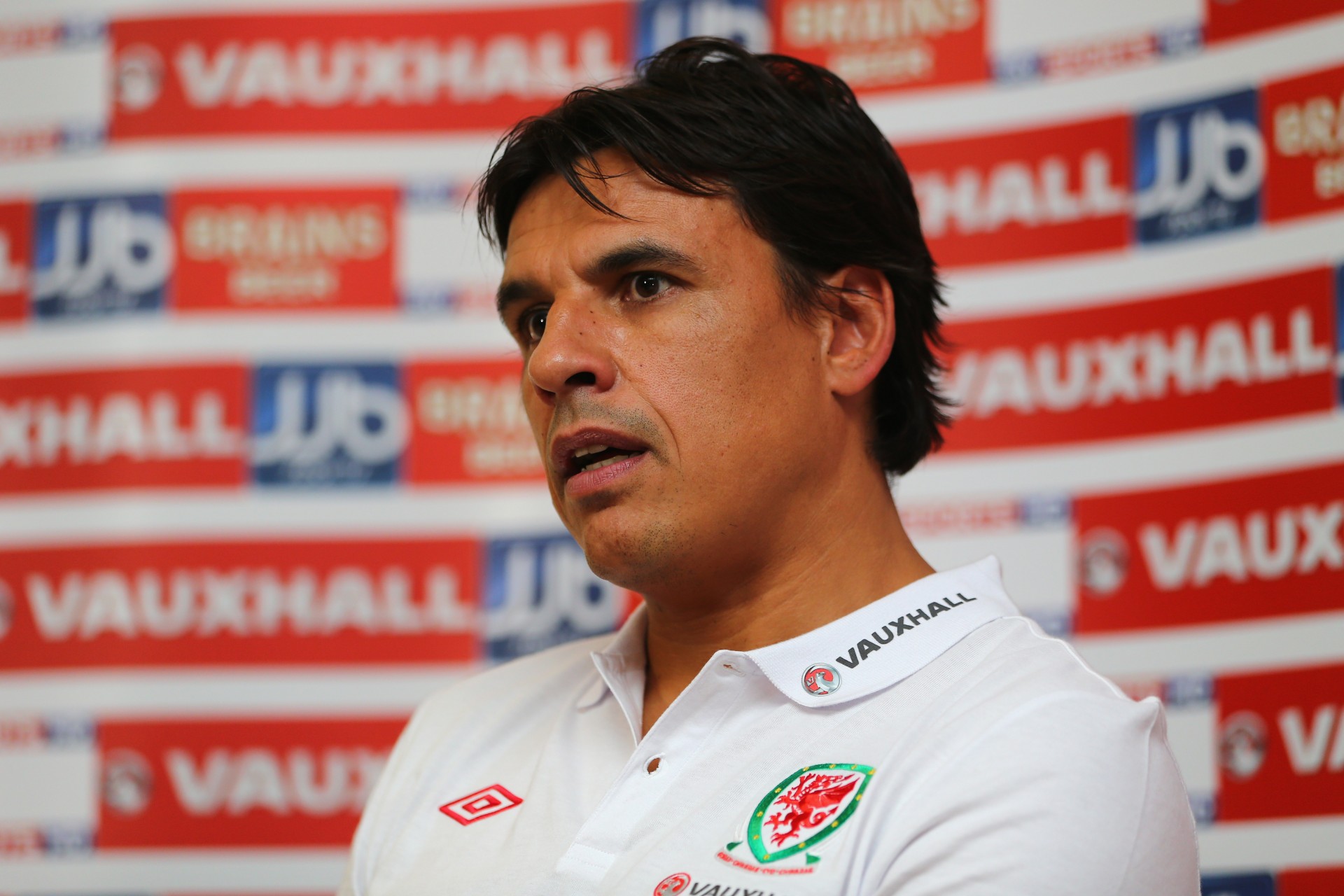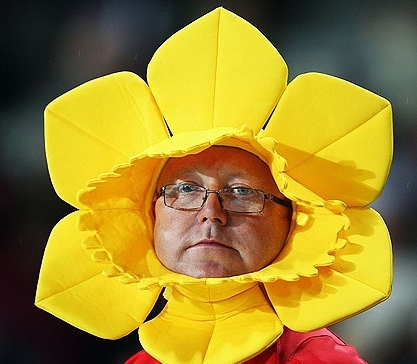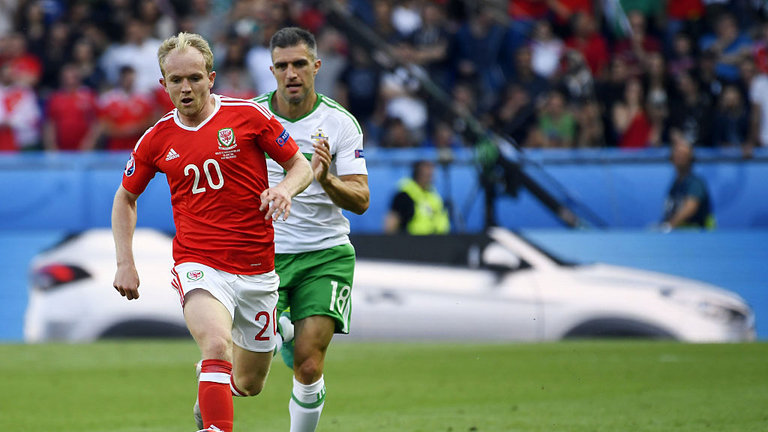No Team GB: our response to the Welsh Conservatives
Team GB recently reared its ugly head after comments by Sam Allardyce, the Welsh Conservatives and vested media interests. The Podcast Pêl-droed team have previously commented on it only via social media and the Apostle messageboard. For the first time, Gareth Taylor pulls these together in a single essay that sets out our staunchly #NoTeamGB position.
You know what really annoys me? When the opportunity for Wales’s finest footballers to shine on a global stage, alongside fellow players from all corners of these isles under the unifying banner of Team GB, is selfishly blocked by petty nationalist interests. Ha-ha, nah not really!
What actually annoys me is when politicians, the media and institutions with vested interests try to disingenuously present their own ill-conceived agenda as a campaign promoting the wishes of the population at large. I have recently browsed a selection media reports on those voices recently speaking out in favour of a British Olympic football team. How many of those voices do you think were representing popular campaigns by football fans, supporters groups or the wider public in favour of making Team GB football a reality? I’ll give you a clue, the number is less than the number of games England won at Euro 2016. Did you know a British Olympic football team lost 1-0 to Luxembourg in Helsinki in 1952? No of course you didn’t, why would you?
Despite the fact it is difficult to find any evidence that Britain’s football watching public are remotely interested in the concept of a British Olympic football team, Welsh Conservative leader Andrew R T Davies and Tory colleague Russell George last week felt the need to reignite the debate over this issue (to the extent it can even be called a debate). He blamed “petty nationalism” for holding back the development of the women’s game in particular. He made evident his confidence in FIFA’s “repeated assurances that the autonomy of our national teams won’t be affected” and reassured us that he “would fight tooth and nail against any proposal that threatened our independence as a football nation.” I know, fills you with confidence doesn’t it? Davies described the absence of a Team GB women’s team as a “devastating blow for the game” and a missed opportunity for Wales’s best players to raise the profile of and participation in the women’s game. “Sadly”, in Mr Davies’s view, “politics and nationalism got in the way again this summer and everyone missed out.” Needless to say, this blog is just one of many responses that seek to point out the holes, or rather the gaping chasms, in the arguments in favour of resurrecting the Team GB football experiment.
Leon, a fellow member of our podcast family, pointed out in a 2015 blog that nationalist feeling is more prevalent among Welsh football fans than it is among the population at large. There are many passionate Welsh football fans who shun all and every aspect of Team GB at the Olympics on the basis that it is anathema to their dreams of Welsh sporting independence in all global sports and competitions and, indeed, to their aim of an independent Wales. That is a position I respect (unlike those who would throw around terms like “petty nationalism”) but for which I personally have been able to offer no more than lukewarm and wavering support during my adult life. It is held with far greater conviction by others at Podcast Pêl-droed – for more on that see our Twitter feed. I raise this point only to stress that this is an issue that should concern and exercise all Welsh football fans, however they frame their national and political identities.
It is clearly not just about nationalism, “petty” or otherwise, Welsh or British. The debate over British Olympic football teams has re-emerged at a time when a majority of Welsh people identify as Welsh and British and will perfectly sincerely cheer on Mo Farah, Jade Jones or Max Whitlock under the banner of Team GB. Therefore in this blog I will be primarily focused on the more immediate reasons why such people should not be equally keen to cheer on British Olympic football teams as I suspect they are the target market for the Team GB football bandwagon. Mr Davies is right when he says that “no-one has a copyright on the right way to support their team”. That is why, whatever your politics, it is important everyone understands that there are several practical and logical reasons why we should once and for all consign the notion of British football teams to the dustbin of Olympic history where it can take its rightful place alongside tug-of-war, the standing high jump, the Jamaican bobsleigh team and John Inverdale’s journalistic credibility.
But before the logical and practical, I’m briefly going to indulge the personal and subjective. Olympic football is rubbish! Did everyone miss out this summer Mr Davies? I have been unhealthily obsessed with football for 26 years and I would still rather watch the qualifying rounds of the synchronised swimming than an Olympic football match. Olympic football just doesn’t fit in. It feels forced and synthetic. Like tennis and golf, it has other competitions which are much more of a global spectacle and generate far more interest. I don’t doubt that Andy Murray felt proud to win a gold medal. But did anyone watching care as much as they cared when he won Wimbledon? Did they care about Justin Rose’s Rio triumph like they cared when he won the US Open? And at least tennis and golf are about competition between individuals so all you really end up with is a less high profile version of all the other major events in those sports. Furthermore, participants of those sports can realistically play in all the golf majors or tennis grand slam tournaments and still compete in the Olympics. So if they are at the elite level of their sport and still want to go for Olympic gold then good luck to them I suppose.
In men’s football what you get is a glorified Under-23 tournament at a time when all European and most non-European footballers of any note are unable to compete. If there had been a men’s Team GB in Rio there would not have been a single Welshman in the squad by virtue of our success as an independent footballing nation. Just this week FIFA President Gianni Infantino has admitted the current format is “not a good solution” and stated “the tournament is neither fish nor bird in this form”. He should know, since the form Olympic football currently takes has been deliberately conceived by FIFA to prevent the competition ever having the potential to rival the World Cup as the showpiece event of international football. So if he’s after solutions mine would be to scrap Olympic football all together. I’m not sure many people would notice, much less care, if they did.
And before anyone starts talking about Neymar and Brazil winning in Rio and how great that was, I have considered that. Brazilian Olympic Gold in football did provide something for people to celebrate and rally around – mostly because of the need for something positive to compensate for the way the Brazilian people were further impoverished by their political class as a result of hosting the games in the first place. Furthermore, if Brazil had won the World Cup two years ago (or at least not suffered that humiliating semi-final defeat) then I don’t think the Olympic final victory over Germany would have had the same weight of significance, and when the sporting history books are written it still probably won’t. Brazil was never likely to trouble the upper reaches of the medal table, so fair enough if they enjoyed Olympic football success. But let’s not pretend it’s up there with 1958, 1970 or 2002.
London 2012 was the most successful Olympics in British history at the time. Yet for all the furore around a British football team back then it became little more than a sideshow to the rowing, athletics and cycling successes that genuinely got millions of people excited. Even if Team GB had done well in the football I suspect Micah Richards, Tom Cleverley and Marvin Sordell (yes, Marvin Sordell was in the squad) would have been significantly less celebrated than Jessica Ennis, Chris Hoy and Ben Ainslie. If you are playing a game that normally dominates global sport the way Ronaldinho dominates an all-you-can-eat buffet, yet people are still more excited by men in lycra and funny helmets following a moped round the velothon, then I’m afraid you are taking part in a tournament matched only by dressage in its pointlessness.
I know many of these points don’t apply to the women’s game to the same extent; for instance, it as an open-age competition for women unlike the under 23 age limit in the men’s game. And I do have some sympathy in that respect. But here’s where the practical and logical considerations start to come in. I want the women’s game in Wales and beyond to go from strength to strength. I remember wondering as a child why only boys were privileged enough to play good sports that lots of people actually liked in games lessons and today I am happy to see that particular example of institutionalised sexism starting to change. However I think a view that looks to the Olympics to grow the women’s game worldwide is a view that lacks ambition for how successful it could be in the long run. Men’s football is a relatively insignificant part of the Olympic Games because of its huge worldwide success outside of the first two weeks in August. Why should the same model not be applicable to the Women’s World Cup, Champions League and Premier League? To effectively say the Olympics is as good as its going to get for women’s football is akin to saying netball is as good as it’s going to get for girls’ PE lessons 25 years ago.
And as a plan to grow interest in women’s football in Wales, Team GB is little more than tokenism. As an independent footballing nation the grass roots growth we need will come from increasing funding and coverage of the women’s game at all levels. This would be significantly helped by an increasingly successful Welsh senior women’s team far more than it would be by one or two (or perhaps no) Welsh players competing in a handful of Olympic matches once every four years. What that would do is give the media an excuse to bury coverage of the independent home nations’ teams underneath a quadrennial Team GB flag waving gala. Why should we in Wales have any interest in giving the English women’s football team (for it was the England team that qualified – more on that later) the opportunity to build on their English success under the banner of Team GB on the off chance they might take Jess Fishlock along for the ride? The Anglo-centrism of this whole debate is explored further by Owain Evans in his excellent piece for exepose.com.
Furthermore, I haven’t yet even challenged the assumption that a women’s team in the Olympics (like the one with zero Welsh players four years ago) is a chance to “develop the grass roots” and to encourage a huge increase in participation. It might help, but sadly to a more limited extent than its advocates imagine. British Olympic Association vice-chairman and former sports minister Sir Hugh Robertson recently pointed out that 154,998 people turned out to watch the four Team GB women’s matches four years ago. To be fair that is impressive, as were most of the crowds in London four years ago. I went to a preliminary round of the weightlifting and it was ram packed with spectators and we all took up weightlifting the next day – true story apart from that last bit. I’ll stand corrected if I’m wrong but I’m not convinced whether, four years on, women’s football in Wales is reaping the benefits of London 2012. The women’s game in Wales has taken some positive steps forward in recent years but most, if not all, of the credit for that lies elsewhere.
In fact, one of the lessons of the London games that is becoming apparent across many sports is that the widely heralded legacy is not all it was supposed to be. The figures for increased sporting participation among the wider population on the back of the assumed inspirational impact of the 2012 successes are disappointing. Equally disappointing is the failure of most of the financial legacy to reach beyond elite competitors in some of Britain’s most successful sports or the infrastructure legacy to reach beyond the geographical constraints of the M25. Given all this, what are the chances that Team GB would do anything other than divert funds away from grass roots development and the independent associations?
More immediately, where else does Andrew R T Davies’s logic fall down? To call his faith in FIFA’s “written and verbal assurances” a triumph of hope over experience is putting it mildly. Would those be the verbal assurances of officials who oversaw and participated in decades of endemic corruption (several of whom, if there is any justice in the world, will find themselves behind bars before Tokyo 2020 comes around)? Even if we indulge the wildly optimistic notion of a ‘FIFA guarantee’ – do we have any written guarantees that extend beyond London 2012 for which Team GB did not need to qualify and which was championed at the time as a one off? Ah yes, remember how the British Olympic Association and English FA guaranteed that 2012 was a one off? I think I’ll start betting my life savings on FIFA guarantees sometime after similar guarantees from the BOA and FA prove to be anything other than as empty as the Qatari Football Association’s hospitality budget the day after a visit from the FIFA’s Executive.
But more seriously, even if we do have guarantees that extend to future Olympics, as former British Olympic Association Chairman Lord Moynihan claimed last year, they surely cannot be set in stone amidst FIFA’s current state of flux. Luckily Lord Moynihan failed in his attempt to use his peerage to interfere in the decisions of the home nations’ football associations in time for Rio by raising the issue in the House of Lords. I’m sure Andrew R T Davies was pleased about this as he made clear last week how much he hates it when political interests interfere with footballing decisions. Mr Davies bases his confidence in future FIFA assurances on the notion that the English, Scottish, Welsh and Northern Irish sides are “lucrative brands” whose disappearance would constitute “financial self-harm on a devastating scale” for FIFA. To be fair to him this is one of his marginally stronger arguments. FIFA and world football has more to lose than to gain by forcing the merger of the home nations into a permanent Team GB. But this is not a hand on which I’m prepared to raise the Olympic stakes, especially as there is no good reason to assume a FIFA congress would endorse the assurances of FIFA’s executive committee if push ever came to shove. FIFA is going through some major changes (hopefully, but not certainly, for the better). Not a good time to persist with what is a relatively pointless pursuit given that the prize is something that hardly anyone wants. Furthermore as Russell, another of the podcast team, pointed out in a reply to Mr Davies’s press release:
“The article misses the obvious point that many FIFA nations and continental federations resent the Home Nations’ privileged position on FIFA’s International Committee and right to nominate their own FIFA Vice President. To demand that British players, men or women, can represent different nations as and when it suits smacks of the very same sense of entitlement that they resent. ‘The best of both worlds’ – precisely why it would serve to inflame and antagonise.”
Closely linked to Russell’s observation is the even more practical issue of how Team GB would even qualify for future Olympics. England’s success in the Women’s World Cup would have hypothetically qualified them for Rio. Should Welsh, Scottish or Northern Irish players (the latter, incidentally, could choose to represent the Irish Republic if they wished) be allowed to parachute in to compete for this qualified England team? Should any of the successful English squad have been left out to accommodate others from the home nations who failed to achieve qualification in their respective teams? Should the rest of the world permanently accept that Britain, in effect, has four opportunities to qualify for the Olympic football tournaments when every other nation only has one? The answer to these questions to my mind is no – for many reasons but none better than the fact it would be a rather shabby and unfair way to do things and if you want any further explanation then I refer you back to Russell’s point above. Why is Mr Davies so sure a compromise could be found to make such an unfair anomaly a permanent feature of international football? More to the point, does anyone really want to instigate a move to such unfairness for the sake of a bit of Team GB flag waving every four years?
The alternative is to qualify as Team GB which would at the very least mean a permanent British team in the women’s game and at Under 21 level in the men’s game. This would obviously destroy the Welsh women’s team; do untold damage to our identity as an independent footballing nation; smash to pieces the carefully constructed pathway through the age groups in the men’s game; and would no doubt be the beginning of a whole new debate around the legitimacy of the home nations’ senior teams for whom none of the current FIFA assurances would then apply. The goalposts (pun intended) would have moved too far. To be fair to Mr Davies, this scenario is the kind of apocalyptic argument that he “simply doesn’t accept” and “would fight tooth and nail against.” Therefore I am curious to hear his suggestion to resolve the qualification issue as it is not evident in any of his recent statements.
Other voices weighing into this debate in the pro Team GB corner have been equally unhelpful and unconcerned with what is in the interests of football in Wales. I don’t doubt that Sam Allardyce sees the lack of Team GB as “a great shame”. I’m sure it would have been a wonderful chance for England and their huge pool of potential internationals to play a few ‘A’ games and try out a few fringe players. I suppose it would be a big opportunity for Mark Noble and Jonjo Shelvey, were they to get the nod as the overage players. And shout me down if I’m being unfair but I don’t suppose British Olympic Association chief executive Bill Sweeney felt any huge sense of responsibility to the interests of Welsh football when, just this week, he made the first pitch in the campaign to reignite this ridiculous debate in time for Tokyo 2020.
As for Andrew RT Davies, if I was being really uncharitable I might suggest that, in the light of his rather strange follow up comments on Welsh devolution, this could just be a case of Welsh Conservatives taking any opportunity to undermine Welsh political and cultural identity. But that’s a whole other blog so you’ll have to just make your own minds up about that one for now.
I’m afraid this debate is unlikely to go away. In fact it’s older than I realised until I read about it this summer. There were suggestions in 1992 and 1996 that the Scottish Under-21 team should represent Great Britain at the Olympics as on both occasions they had done well enough in the previous years’ European U21 Championships to qualify. It was those other “petty nationalists” in the SNP who actually suggested it. Whatever happened to them eh? Thankfully the Scottish FA stopped such a fiasco from taking place. England’s men’s team have only ‘qualified’ once and could theoretically have played in the Beijing Olympics in 2008. Consequently, as a Welsh person, you still can’t go to a pub in England without aggrieved locals having a go because of how we stood in the way of Justin Hoyte and Matt Derbyshire’s one big shot at Olympic Gold. “It’s a damn shame!” you’ll hear them say. Probably.
Many Welsh fans believe that when Gareth Bale pulled out of the Team GB squad for London 2012 he was taking some sort of heroic stand against its inception. There’s even a song about it. Personally, I find this hard to believe. And if he was taking a stand he did it very quietly and whilst there were still marketing posters of him in the kit on the sides of buses all over the country. Joe Allen, Aaron Ramsey and Neil Taylor all played for Team GB. I don’t resent any of them for this (although I do wonder if they’d ever bother again given where Welsh football is now) but what it did show is that we can’t rely on our players to take a stand on this issue for us. Their job will have to just be trying to make the Welsh team as good as it possibly can be. It is the job of others to combat the political efforts to undermine our footballing independence. The FAW have taken a consistent line against it which was important in preventing Team GB’s re-emergence for Rio. Kudos to Trefor Lloyd Hughes for making his anger at the English FA and his determination that Welsh football was “not going to be bullied” explicitly clear 18 months ago. Chris Coleman is doing his bit, not least with his bullish response when the issue was raised in last week’s press conference.
We the fans also need to do our bit to challenge the voices calling for more British Olympic football in the future. Given that there are only about six voices championing this flawed cause it shouldn’t be too difficult. Still, our politicians and media should be left under absolutely no illusion: people do not feel like they have “missed out” this summer. The record TV audiences for our Euro campaign and the explosion of Welsh football shirts all over the country seem to suggest that old and new fans alike were pretty happy with the football viewing experience that was on offer in 2016. I, for one, think that what happened in France will build a far bigger legacy for football in Wales than any success for Team GB at the Olympics ever could. I suspect even the players might be a bit more conscious of this issue now. On the topic of what Welsh football fans want to see, Chris Coleman said last week:
“Of course they want success, they want to see a team on the pitch that when they walk on the pitch they’re emptying it for the jersey, for the badge, for the honour. That’s what we’ve got, so no need for us to mess about with that.”
Da iawn!
Mr Davies, that is how the Welsh team feel.
That is how the thousands who traveled to France feel. That is how the millions who watched the greatest summer in Welsh footballing history back in Wales feel. If you feel otherwise, that is your right. But I think I might then take your promise to “fight tooth and nail” for our footballing independence with a pinch of salt.
#NoTeamGB
#DalDyDir

